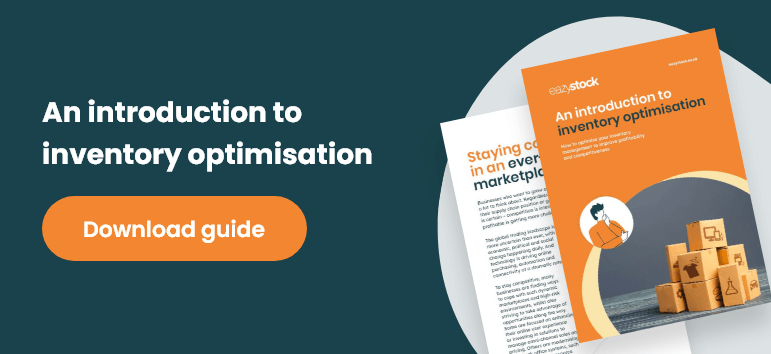How cloud computing can make supply chains more competitive
More traditional supply chain strategies originated when the business environment was steadier. When business cycles are predictable, and demand is stable, supply chain professionals could focus less on solving challenges and more on cost reductions.
With all of the changes in the supply chains, supply chain professionals must now focus more on problem-solving and how to deal with changing demand, volatility, and disruptions.
Recent Accenture research showed that 53% of supply chain executives said the pandemic had made them rethink their overall supply chain. This is leading many companies to use cloud computing solutions as a key enabler in transforming their business and operating their supply chains.
Cloud computing, often referred to as ‘the cloud’, is simply the process of running programmes and storing data over the internet rather than using a local or personal server.
The transition to cloud solutions in supply chain management
Cloud-based technologies have been around for many years, and the move to migrate their systems for supply chain professionals seems to have been a bit more cautious.
Companies could have been reluctant to move their data over to the cloud for multiple reasons. Management might have been cautious about adopting cloud-based supply chain solutions due to concerns over data breaches and loss of irreplaceable data. In a supply chain, you may also risk more than just your own company’s data if you also have access to supplier and customer data.
However, previous concerns about data security have significantly decreased over recent years as cloud computing solutions have proved incredibly secure.
The risks of using the cloud for your supply chain management activities are no more significant – though they may be different – than the risks of an on-premise IT solution. Also, the “traditional” view of supply chain management is no longer the best option for most companies. As supply chains become more complex and globalised, companies must invest in the right tools to effectively manage their operations.
The main reason companies move over to the cloud is cost savings. However, the cloud also drives speed, agility, and visibility, providing a range of benefits for your business.
The advantages of cloud computing in supply chains
In an Accenture survey, supply chain leaders said they would continue investing more in cloud computing over the next two years. Replacing on-premise IT solutions with cloud computing and software-as-a-service (SaaS) solutions in supply chain management will deliver many advantages and benefits to supply chain performance.
Here we highlight some of the advantages and benefits of cloud computing and what it can do for your supply chain management performance.
1. Increase cost-effectiveness
Moving to the cloud eliminates expensive software setups and the ongoing cost of running outdated on-premise solutions. In the long run, it reduces costs associated with managing and maintaining IT systems. Rather than purchasing expensive systems and equipment, you reduce costs by using your service provider’s resources while paying a subscription fee.
SaaS-based solutions are often also faster to implement, provide a lower cost of entry, eliminate investment risks for the buying company, and demonstrate a quicker ROI.
2. Speed and flexibility
Cloud computing provides an on-demand service, meaning you have a vast amount of data always available at your fingertips. Easier and more transparent access to data allows for greater flexibility and responsiveness, and it takes some pressure off your supply chain planning and management. Adapting to cloud-computing solutions makes it possible to connect your resources and constantly get up-to-date information allowing you to make informed decisions with the right information.
3. Increased efficiency
The cloud allows for greater collaboration because it allows your business to communicate and share data more easily. Using the cloud should enable you to share your supply chain information across multiple locations and with external collaborators more efficiently.
The result is a solution that increases efficiency and integrates people, processes, and technology.
4. Rapid scalability
As the cloud facilitates connectivity, it allows for the consolidation and coordination of data and systems. Cloud computing supply chain solutions operate on a flexible, usage-based model that provides a network, storage, and capacity to be updated or adapted faster. Potentially, it can be used to connect and add new partners and suppliers, scale up (or down), or adapt to changing customer demands or new market conditions.
The cloud can also rapidly respond to meet new demands in terms of size and volume, allowing for supply chain growth and scalability.
5. Increased supply chain resiliency
As cloud computing helps reduce time and improve the visibility to supply chains, it also helps companies anticipate and predict market changes and risks across their supply chain network. Therefore, the cloud also enables businesses to build supply chain resilience.
The cloud knits together a complex web of services and data from suppliers and manufacturers to inbound logistics providers, to a company’s factories and warehouses, distributors, and, eventually, customers.
The future of cloud computing in supply chain management
Organisations are increasingly taking advantage of cloud solutions in their supply chain management activities. As companies digitalise their supply chain strategies, cloud applications will provide the adaptability to scale up quickly. With employees continuing to work remotely or in hybrid models, data will be available whether in the office, at home, or in the warehouse.
The digital age and globalisation mean your business needs to be more connected to succeed. As your supply chain grows and evolves, your methods and tools should too. If you want to explore the benefits of utilising a cloud-based SaaS solution, such as EazyStock, to achieve inventory optimisation, you can book a free demo here.
Inventory optimisation software helps you improve stock availability, boost efficiency and optimise stock levels. This maximises your supply chain performance, accelerates growth, and enhances customer experiences.










